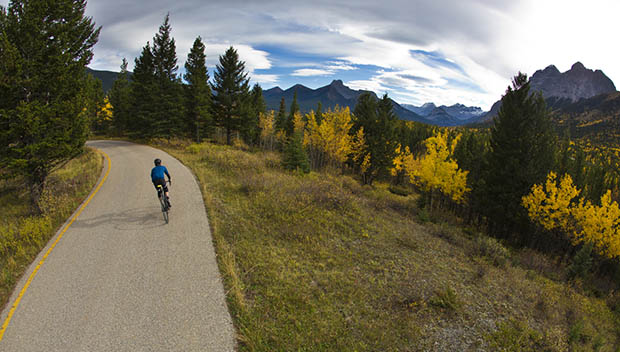
The pro cyclists you saw swooping around France in July didn't always have those wiry calves and ninja-like reflexes. At some point, they all had to learn how to train smart, to clip into their pedals, and even how to shift gears. While only a select few of us will ever take in the view from atop a podium, we can all rejoice in the fact that no cycling skill is impossible to master. To that end, we asked coaches, mechanics, top racers and other experts to help you improve your ride, whether you're trying to set a century PR or just figuring out how and when to push that little lever on your handlebar. Here's what they told us.
The Ultimate Beginner's Guide to Cycling
Stay Fresh
Ride new roads once in a while, says Tom Zirbel of Optum Pro Cycling: "Bust out a map and explore. The variety will help you stay engaged and may lead to some exciting new discoveries."Intervals Made Easy
With descending intervals done at maximum intensity, it's easy to remember what to do, says renowned coach Chris Carmichael.
Beginners: Do this set twice. More advanced riders can work up to six sets per session.
- 2 minutes hard, 2 min. easy
- 1-minute hard, 1 min. easy
- 30 seconds hard, 30 seconds easy
- 15-second sprint
- 5 minutes easy
More: 4 Cycling Intervals That Will Make You Faster
Conquer a Steep Climb
It's all about pacing, says Chris Carmichael. "Unless it's an important climb in a race, don't charge into it with everything you have. Start at a steady pace and shift through your gears until you reach a balance between maintaining a decent cadence, about 75 to 80 rpm, and a sustainable intensity." If you go hard too early, you're likely to stay in too big a gear, which will tire you out and slow you down.The Hill Workout You Need to Try
Fly for Cheap
Ditch the telltale case and stuff your bike into a hockey-goalie bag, says multi-time mountain bike world champion Brian Lopes. "I haven't paid more than $50 to fly with my bike in about three years." To get his bike to fit, Lopes removes the fork and puts it inside his suitcase. (Same goes for brake rotors if he's packing a mountain bike.) He jams everything else, wheels included, into the duffel. "After you unpack, you just have a big bag, not some giant bike case. That's a big help if you're staying in a tiny hotel room."Finish Your First Century
"Add an extra 10 miles to your longest ride once a week until you reach 80 miles," says cycling coach Frank Overton. "Use this time to dial in your food and fluid intake. If you finish a ride feeling overly depleted, you probably didn't eat or drink enough." On the big day, pace yourself, says physiologist and coach Neal Henderson. "Many first-time century riders get caught up in the excitement and start too fast. Also, be prepared for some mental highs and lows. Being ready for a psychological roller coaster will help you enjoy the journey."


